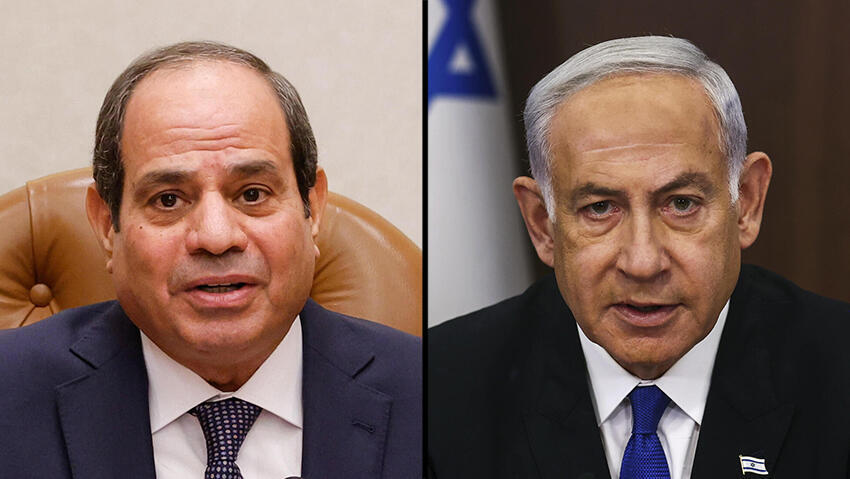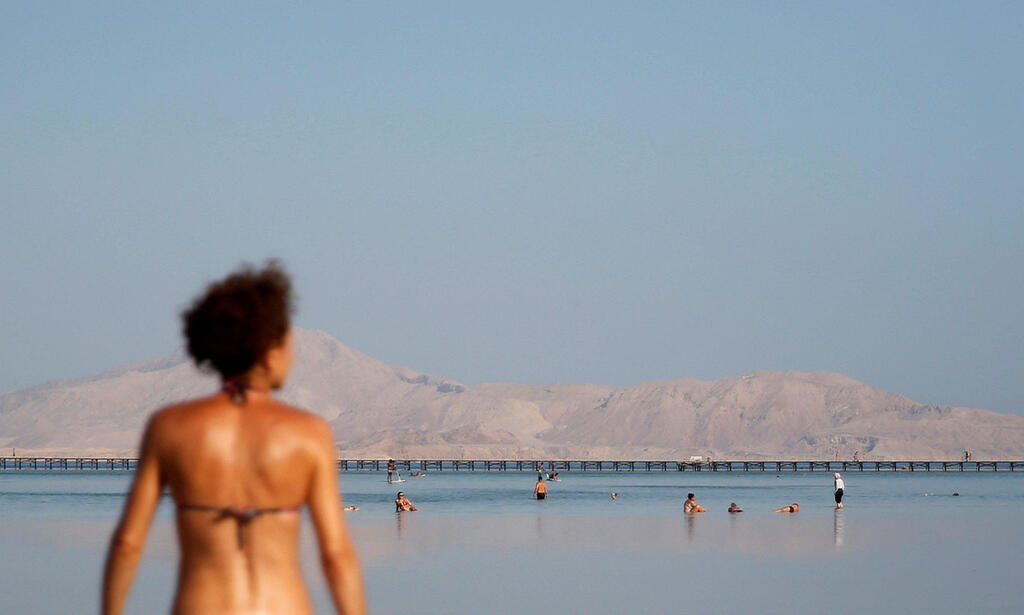The official statement released by Egypt's Foreign Ministry over the weekend following the hostage rescue operation was particularly harsh, severe and frustrating. To Israeli ears, it sounded like a condemnation, some might even call it a bizarre denunciation, of Israel's violation of international law in the IDF strikes on the Nuseirat refugee camp. Not a single word was mentioned about the real reason for the operation in the camp.
It was later revealed that the three men were held at the home of a doctor, Dr. Ahmed Aljamal, and his son, journalist, photographer and Hamas activist Abdallah Aljamal (another Gazan journalist entangled in the war). The journalist’s wife was killed when IDF soldiers entered the apartment using a ladder. His sister Zaineb was severely injured but survived.
2 View gallery


Egyptian President Abdel Fattah El-Sisi and Prime Minister Benjamin Netanyahu
(Photo: EPA, AP)
Egyptian news sites are filled with stories about non-existent cooperation between an elite U.S. unit and its Israeli counterpart. The reports suggest that U.S. soldiers allowed their Israeli counterparts to use the humanitarian pier to Gaza to infiltrate the refugee camp for the joint operation.
It's important to emphasize: the media in Egypt is not free and does not operate like in Israel or Western newspapers. Although there is no military censorship like in Israel, newspaper editors know their limits when it comes to publishing exclusive or sensitive stories. They cannot publish everything they want or know, and the editor-in-chief might face reprimand, be sent for interrogation or even end up in jail.
The rules are clear. In Egyptian intelligence newspapers, however, rumors can be turned into news stories, reinforcing the impression that "only we know," and leading narratives that drill deep and painful holes into the other side's defenses.
The pile of grievances between Egypt and Israel has been growing at an alarming rate in recent weeks and now threatens to burst. There are no longer visits by Israeli citizens to the magnificent archaeological sites of Luxor and Aswan, not only due to the fear of "Zionists" wandering the Khan el-Khalili market as usual, but mainly due to real concerns for their personal safety and lives. Cairo cannot afford another attack on Israelis.
The little trade that existed between the countries has dwindled. The Israeli embassy in the Maadi district has been closed for eight months. Only a group of senior defense officials makes occasional trips for talks at the intelligence headquarters in Cairo.
Egypt is furious with Israel for deploying security forces to the Palestinian side of West Rafah and taking control of the Palestinian section of the Philadelphi Corridor, which is 9 miles long and only 100 yards wide. Israel continues to frustrate Egypt by exposing tunnels and the smuggling of weapons and explosives. Egypt claims to have flooded the tunnels with water, but Israel clarifies—not all of them.
Amid the flare-ups in Gaza, the national airline EgyptAir announced the suspension of all its flights to Lebanon, Jordan and Iraq. Those determined to reach Cairo or leave Egypt will have to fly to Cyprus and pay a fortune or extend their route to Dubai. Flights to Israel, which are only an hour away, were halted even before the war under the inaccurate pretext that "there are no passengers."
And now a surprise. Despite the bitterness on both sides and the justified complaints between Israel and Egypt, neither country intends (at least in the foreseeable future) to revoke the peace agreements. Their benefits far outweigh their drawbacks. The hope is that one day they will return to a "cold peace" and perhaps even manage to warm it up. Today, this peace is frozen, soaked with bad blood and filled with bitterness.



